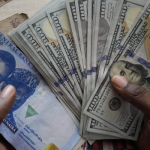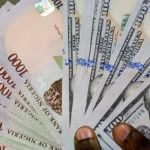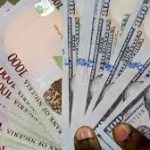The Central Bank of Nigeria (CBN) began the week by injecting $150 million into the foreign exchange market to support the naira amid persistent pressure. Analysts now expect the naira to trade within a stable range in the second quarter, driven by sustained CBN interventions.
Last week, the apex bank sold $635 million to authorized dealers to boost liquidity in the FX market. Despite these efforts, analysts warn that any slowdown in U.S. dollar supply could trigger negative movement in the exchange rate.
Demand pressure resurfaced in the official window as foreign investors continued to pull out of naira-denominated assets. In response, the CBN intervened with another $150 million, selling at rates between ₦1,593.20 and ₦1,623 per dollar. AIICO Capital Limited noted that the naira traded within a range of ₦1,593.10 to ₦1,630 during the session.
Data from the CBN revealed that gross external reserves dropped to $38 billion, reflecting weaker inflows and a slowdown in oil-related foreign exchange receipts.
Menwhile, oil prices declined on Monday despite upbeat signals like a sharp rebound in China’s March crude imports and tariff exemptions on electronics by the U.S. Brent crude fell by 42 cents to $64.34 per barrel, while WTI dropped 53 cents to $60.97.
Gold prices also dipped after hitting new highs earlier in the day. Spot gold fell by 1.1% to $3,200.11, while U.S. gold futures slid 0.9% to $3,216.20, as improved market sentiment trimmed demand for safe-haven assets.
Amid rising global uncertainties and capital flight, Nigeria’s apex bank remains under pressure to balance the naira’s stability with depleting reserves.










